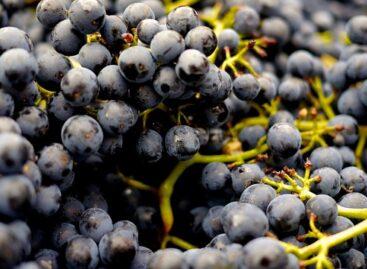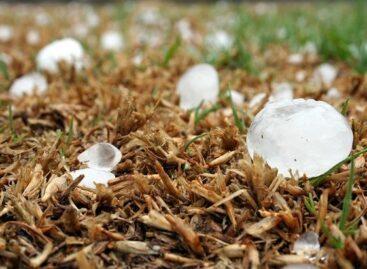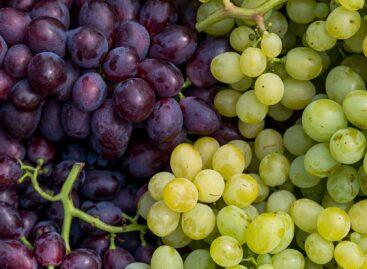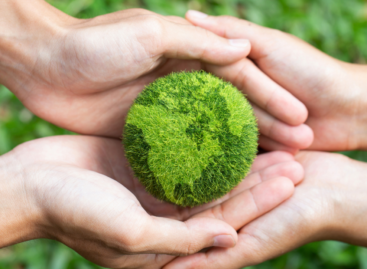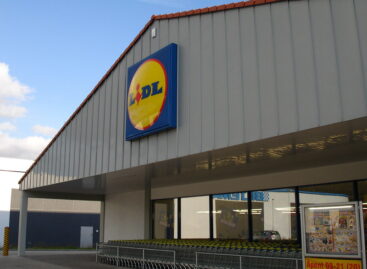Hungarian melons are available from the weekend! Producers expect good quality
From the weekend, domestic melons are already available – in smaller quantities – in shops and markets, and from the beginning of July the range will continue to expand. Producers expect good quality, significant progress has been made in the field of variety selection and production technology, according to the information of the National Chamber of Agricultural Economy (NAK).

(Photo: PIxabay)
NAK, the Hungarian Melon Growers’ Association (MDE) and FruitVeB – the Hungarian Association of Vegetables and Fruits held a press conference opening the melon season today. As mentioned, domestic melons will be available in smaller quantities from this weekend, and larger quantities are expected from the first week of July. First, the melons will reach consumers from the southern part of the country, from the Békés, Tolna, Baranya region, then from the Heves region, later, from the end of July, from Szabolcs-Szatmár-Bereg – and if the weather is favorable, they will be available until mid-to-late September.
The situation of melon production has changed significantly in recent years
While cultivation used to be carried out using conservative technology, melons are now produced in an area half the size of previous decades, but in a similar quantity. In addition, this year the production area started to increase, compared to last year’s 2,600, melons are produced on 2,900 hectares. Experts expect a harvest of around 140-160,000 tons this year, of which around 15,000 tons are melons and the rest are watermelons. The amount may vary somewhat depending on the weather, but all the conditions are there for a high-quality, tasty harvest this year. In recent years, Hungarian melon producers have increasingly lost their export markets, which were acquired by the Spanish, Italians and Greeks.
This also encouraged domestic producers to change technology and varieties
In order to modernize production, the chamber and the seed distribution companies also organized study trips to competing countries. As a result of this, a slowdown in the reduction of the domestic production area was also noticeable, and the place of outdated, constant melon varieties was taken over by grafted and hybrid melons, the proportion of which has now reached 95% of the total melon production area. That is, the use of varieties in Hungary has become competitive at the international level, and production under foil has also appeared, which can be used to advance the start of the season. 2-3% of our watermelon production, while more than 20% of our cantaloupe production comes from foil production. Overall, it can be said that production has become much more efficient, and more disease-resistant varieties have taken the place of the old ones. The yield averages and yield reliability increased, but at the same time the usual delicious taste remained, and even the quality increased. The domestic climate is especially beneficial for melon cultivation, despite the fact that we are located on the northern border of production. Due to the temperature fluctuations during the day and night, the acid-sugar content of the fruit is balanced, thanks to the developed taste and aroma substances, melons grown in Hungary are much tastier than the sweet but low-acid melons of southern countries.
In Hungary, melon consumption is 10 kg/person on average; it is sold more in hotter summers, less in cooler ones
Melon consumption is increasing, 1.5-2 kg, but still less than in Western countries. Consumer habits are constantly changing, the demand for smaller, 4-6 kilo watermelons and seedless watermelons is getting stronger. They also look for 4-8 kilo melons with dark stripes, most of which are sold in supermarket chains. The proportion of giant melons has decreased, but there is still a demand for them, in sliced form, in “roadside” and greengrocer sales. The most popular types of cantaloupe in our country are Cantalup and Gália. Domestic cantaloupe production is concentrated, the largest amount is produced in Bács-Kiskun county. Cantaloupe has great potential and demand, but at the same time, the risk of production is also higher.
NAK and MDE signed a cooperation agreement in 2018, among other things, in order to improve the market positions of Hungarian melons
Then in 2019, the melon working group was established within the horticulture and supply industry department of the chamber. In order to reduce incoming imports, we have successfully cooperated with supermarket chains in recent years, helping to harmonize producers and trade chains. Thanks to the change in the producer’s attitude – in which the association played a major role – changes were made in sorting and delivery, which made the goods more homogeneous and exportable. The domestic cultivation area started to grow this year, and there is renewed hope of regaining the lost export markets, which were already in demand by foreign importers last year. It is expected that a third of the melons produced this year will be exported, most of them to the Polish, Czech, Slovak and German markets.
Watermelon is more than 90% water, so its consumption is a significant help in replacing liquid
Cantaloupe is an excellent source of carotene and vitamin C, the health-protecting role of citrulline and lycopene in watermelon can be attributed. The lycopene present in watermelon can be directly used by the human body and has an antioxidant effect. It can also play a role in preventing the development of various vascular diseases, heart attack and cancer, but also in protection against UV radiation. Among the medicinal effects of cantaloupe, in addition to its role in alleviating skin diseases and colds, its good digestion, favorable stomach and intestinal function, and kidney cleansing effect deserve mention. Melons, especially cantaloupes, are also excellent sources of macroelements and ions with beneficial nutritional and physiological effects. Yellow and watermelon also surpass the values of apples in terms of calcium, iron, magnesium and potassium. It is interesting that the melon seed contains all the valuable essential amino acids, it is abundant in iron, zinc, calcium and B vitamins; in order to exert its beneficial effects, it must be chewed thoroughly.
NAK
Related news
Table grapes can withstand climate change well
Fruit growing faces more and more challenges due to the…
Read more >Tens of billions of forints in damages were prevented by the national ice damage mitigation system this year as well
Despite the extremely stormy weather, there was much less ice…
Read more >Table grapes can be one of the winners of climate change
While fruit growing is becoming more and more unpredictable due…
Read more >Related news
Farmers can get information on the spot, in person
In October-November, Biokontroll Hungária Nonprofit Kft. organizes a cross-country tour…
Read more >Food Packaging Should Have Labels On Front About Health Impact, Says WHO
Packaged food and drinks should have easy-to-read nutritional information on…
Read more >Lidl’s Scan&Go is coming – with payment at self-checkout
After years of testing different systems and processes in Portugal,…
Read more >
